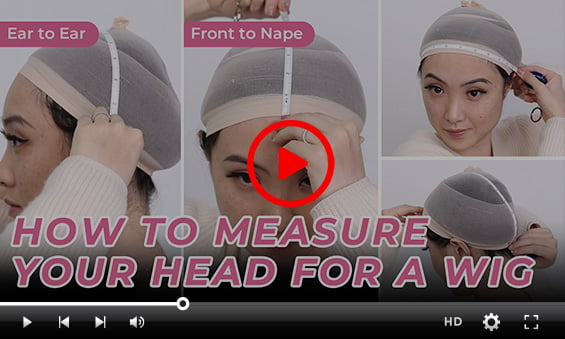How To Choose
The Right Hair
Type
| Hair Type | Pros | Cons | Best For |
|---|---|---|---|
|
Human Hair Wigs Learn More >
|
|
Higher price point |

Daily wearers who want a natural, versatile style |
|
Synthetic Wigs Learn More >
|
|
Less natural shine |

Quick styling, budget-friendly options |
|
Hair/Synthetic 
|
|
Less
styling
|

Those seeking balance between realism and ease of use |
How To Choose
The Right Wig
Size
When it comes to choosing a wig size, our average size is the most popular choice among customers. Approximately 90% of our customers prefer the average cap size, which has a circumference of 22 inches. To explore our full range of wig sizes and learn how to measure yourself for the perfect fit, please take a look at our wig size guide.
| CAP SIZE | CIRCUMFERENCE |
|---|---|
| XS - Extra Petite | 20.25" - 20.75" |
| S - Petite | 21"-21.5" |
| S/M - Petite/Medium | 21.25"-21.75" |
| M - Medium | 22"-22.5" |
| M/L - Medium/Large | 22.5"-22.75" |
| L - Large | 23"-23.5" |
To figure out your perfect size, you will have to measure
your head. To do this,
you can use a
tailor's tape measure that can be found at most drug or grocery stores. To start measuring, place
the end of the tape measure at your front hairline. Then, move the tape around your head, over your
left ear, and across the nape of your neck or back hairline. Next, move the tape around the right
side, over your ear, and bring it up to the front again. This measurement will give you the
circumference of your head.
However, if you plan to purchase a custom-made item, you will need to take four
additional measurements.
Wig Size
(inch)
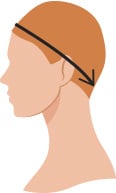
Circumference
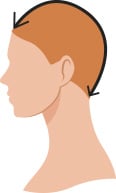
Front to Back
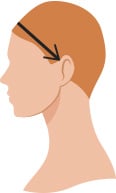
Side to Side
across forehead
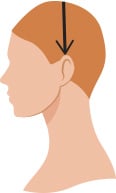
Side to Side
over top
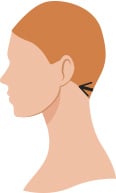
Nape of Neck
How To Choose
The Right Cap
Construction
| Cap Type | Key Features | Pros | Best For |
|---|---|---|---|
| Machine-made Wigs | Wefts sewn by machine for structure |
|
Everyday wear with minimal fuss |
| Lace Front Wigs | Transparent lace front for natural hairline |
|
Daily use or special occasions |
| Monofilament Wigs | Sheer mesh cap with hand-tied top |
|
Sensitive scalps or realistic styling |
| Silk Top Wigs | Silk layers fully hide knots for realistic scalp |
|
Close-up wear, photos, or high realism needs |
| Medical Wigs | Fully hand-tied with silicone for grip |
|
Hair loss from medical conditions |
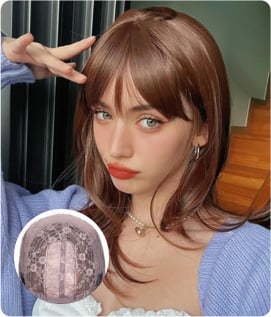
Machine-made Wigs
View More >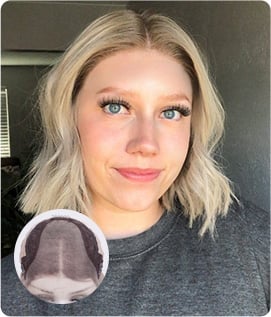
Lace Front Wigs
View More >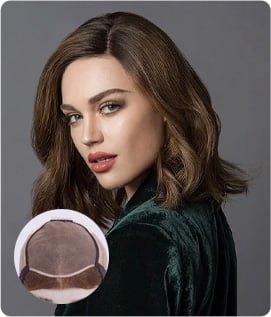
Monofilament Wigs
View More >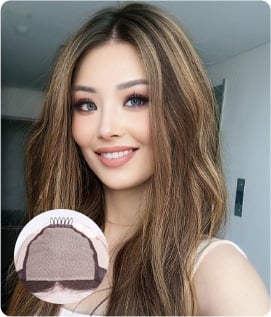
Silk Top Wigs
View More >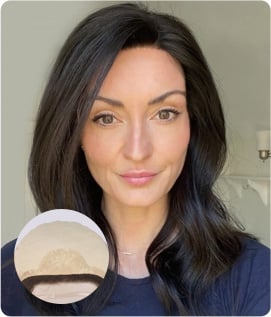
Medical Wigs
View More >How To Choose
The Right Hair Color
Finding the perfect wig color can be a daunting task, but there are several key factors to keep in mind when making your decision:
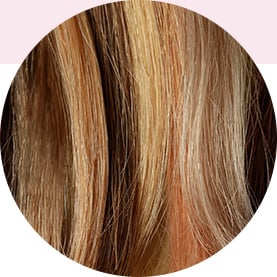
Your skin tone plays a critical role in determining the right wig color for you. If you have a warm skin tone, opt for warm hues such as honey blondes, auburns, and golden browns. For those with cooler skin tones, choose cooler colors such as ash blondes, cool browns, and black.
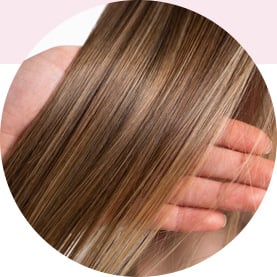
Your natural hair color is also an essential consideration when selecting a wig color. If you're looking to replace your natural hair, it's best to choose a color that closely matches your natural hair color, as this will help the wig blend seamlessly with your skin tone.

Personal style is another crucial factor. Are you going for a natural look or something more daring and dramatic? If you prefer a natural look, go for a color that's similar to your natural hair color. On the other hand, if you're feeling bold, try a color that contrasts with your skin tone.
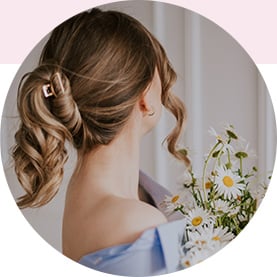
The occasion you're wearing the wig for can also influence your color choice. If you're attending a formal event, a more subtle color may be appropriate, while a fun event or costume may call for a brighter, bolder color.
How To Choose
The Right Length &
Density
LENGTH
To measure your own hair, use a soft measuring tape and measure from the top of your head to the ends of your hair. It's best to choose a wig that’s 1–2 inches longer than your desired length. This gives you room to restyle and ensures the wig looks natural as it follows the curve of your head.
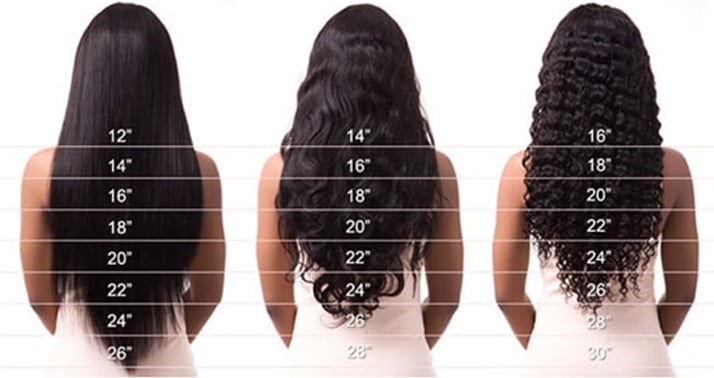
DENSITY
Hair density refers to the thickness of the hair.
Choosing the right
density depends on personal
preference. Some people prefer a bit more volume, while others like a more natural look, and some people
want a glamorous, full-volume style like that of red-carpet stars.
The table below illustrates
different hair densities and their outcomes:
| HAIR DENSITY | HAIR OUTCOME |
|---|---|
| Light to medium | 100%–120% This density offers a natural, lightweight look that mimics real hair volume. It’s breathable and comfortable for daily wear, perfect for subtle styles. Great for those who prefer a realistic and effortless appearance. |
| Medium | 130% This is a standard hair density that is currently trending in the wig market. Medium density gives a fuller yet still natural look. It provides enough volume for versatile styling like curls, waves, or updos without being too heavy. |
| Medium to heavy | 150% This density delivers a thicker, more voluminous appearance. It’s perfect for bold styles and glamorous looks but feels slightly heavier. Great for those who love fuller hair with lots of bounce. |


